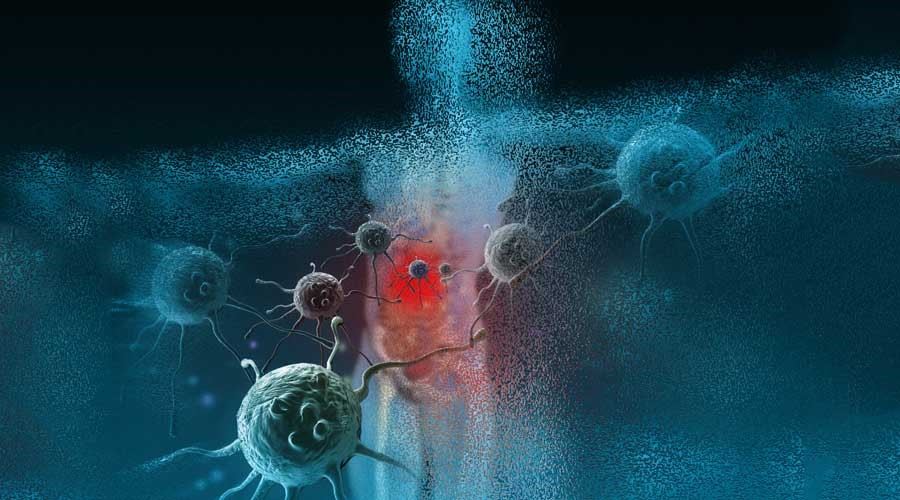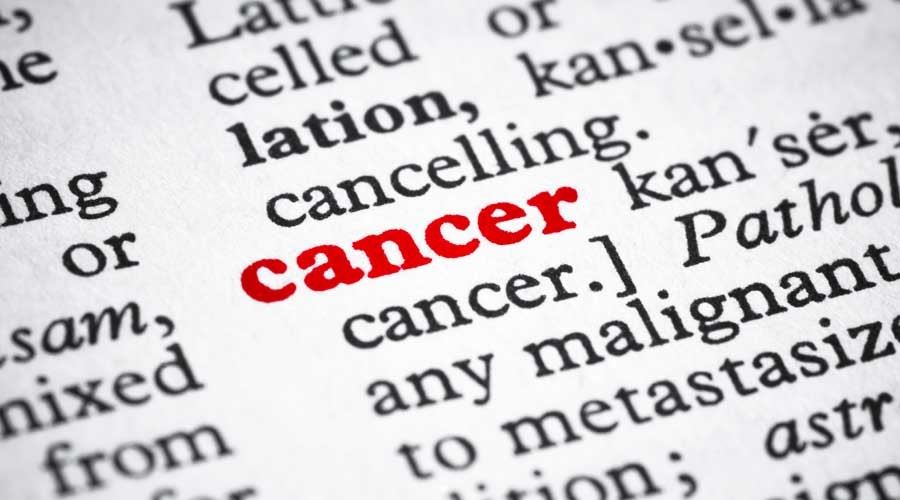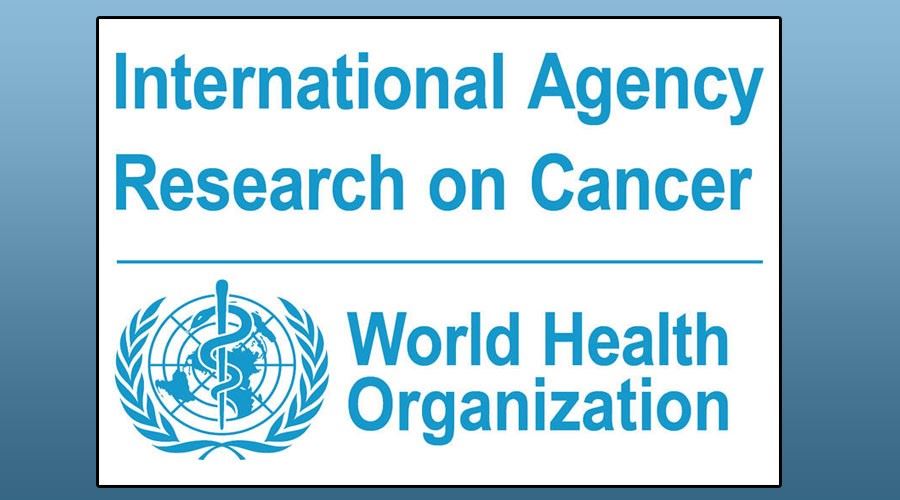
Roundup Cancer Study – Published Research

 When scientists study chemicals to determine whether or not they may cause disease, they generally perform one of three different types of testing:
When scientists study chemicals to determine whether or not they may cause disease, they generally perform one of three different types of testing:
- Animal studies
- Mechanistic studies
- Epidemiological studies
All three types of studies have been conducted by researchers investigating the toxic and carcinogenic (cancer-causing) properties of Roundup weed killer and its active ingredient, glyphosate. Each type is explained below, followed by brief summaries of published studies in that category. Each summary then links to an expanded discussion of that Roundup cancer study.
In addition to the three types of studies listed above, scientists also write summary reviews and meta-analysis papers that tie together the knowledge gained from dozens and even hundreds of previously conducted studies in order to draw conclusions about the risk of disease associated with particular toxins. A meta-analysis examines several independent studies on the same subject, using the increased number of combined participants to help detect significant elevated risks of adverse events linked to exposure to a chemical as opposed to chance or other factors. The 2015 monograph written by the International Agency for Research on Cancer, which found glyphosate to be “probably carcinogenic to humans,” is a summary review of studies and included a meta-analysis showing a significant increased risk of NHL for individuals exposed to Roundup. The final section below presents several studies in this category.
Scientists Uncover Genotoxic Pathway Linking Glyphosate Exposure to Multiple Myeloma and Non-Hodgkin Lymphoma
Title: Glyphosate induces benign monoclonal gammopathy and promotes multiple myeloma in mice
Journal: Journal of Hematology and Oncology (2019)
Lead Author: Lei Wang
Scientists at the Lerner Research Institute in Cleveland, Ohio, have uncovered a biological mechanism through which glyphosate activates an enzyme known to play a key role in genetic mutations that lead to multiple myeloma (MM) and non-Hodgkin lymphoma (NHL). This mouse study produced data that “support glyphosate as an environmental risk factor for MM and potentially NHL.”
“Our data disclose, for the first time, that glyphosate elicits a B cell-specific mutational mechanism of action in promoting carcinogenesis, as well as offering experimental evidence to support the epidemiologic finding regarding its tissue specificity in carcinogenesis (i.e., only increasing the risk for MM and NHL).”
Roundup, Genetically Modified Corn, and Cancer
Title: Long-term toxicity of a Roundup herbicide and a Roundup tolerant genetically modified maize
Journal: Food and Chemical Toxicology (2014)
Lead Author: Gilles-Eric Séralini
The link between Roundup, genetically modified corn, and cancer was revealed by this French study that investigated the long-term consequences of exposure to Roundup. Though this study is actually a long-term toxicity study, not a cancer study, the results demonstrate that chronic exposure to Roundup and GM corn can produce evidence of carcinogenesis that may not appear in short term (90-day) studies.
Glyphosate Cancer Promotion Study
In this 2010 mouse study, scientists found that glyphosate is a cancer promoter. In other words, if cancer cells are already present, glyphosate promotes the growth of those cells and causes tumors to grow faster.
Title: Studies on glyphosate-induced carcinogenicity in mouse skin: A proteomic approach
Journal: Journal of Proteomics (2010)
Lead Author: Jasmine George
Glyphosate and Kidney Cancer
Title: A chronic feeding study of glyphosate in mice
Journal: Unpublished report prepared for Monsanto by BioDynamic Inc. (1983)
Lead author: A. L. Knezevich
In this unpublished 1983 mouse study, which was submitted by Monsanto to the U.S. Environmental Protection Agency, scientists found that exposure to glyphosate was associated with a dose dependent increase in renal carcinomas (kidney cancer). Monsanto went to great lengths to try to reverse the findings of the study and refused EPA requests to conduct a second study that might have confirmed the association.
Mechanistic Studies
In mechanistic studies, scientists look at how a chemical affects humans or animals on a cellular level. They seek evidence that glyphosate is disrupting the complex operation of cells in ways that could lead to cancer or other disease. Often, this disruption includes damage to the cell’s genetic material – DNA.
In some studies, known as “in vivo” studies, the cells of humans or animals who have been exposed to Roundup or glyphosate are examined for genetic damage or damage to other essential cellular mechanisms. In other studies, known as “in vitro” studies, human or animal cells are exposed to glyphosate or Roundup in a laboratory setting (in a Petri dish) and then examined for damage to cellular mechanisms.
The studies below represent various types of mechanistic studies.
Glyphosate DNA Damage May Cause Cancer
Title: Screening of Pesticides with the Potential of Inducing DSB and Successive Recombinational Repair
Journal: Journal of Toxicology (2017)
Lead Author: Karen Suárez-Larios
Scientists investigating the impact of pesticides on the DNA of lymphocytes, a type of white blood cell, have found that glyphosate, the active ingredient in Roundup, may cause a form of DNA damage that can lead to cancer, including non-Hodgkin lymphoma. The study was published in the October 2017 issue of Journal of Toxicology.
Glyphosate-based Herbicide Study Shows Formulation is More Toxic than We Thought
Title: Toxicity of formulants and heavy metals in glyphosate-based herbicides and other pesticides
Journal: Toxicology Reports (2018)
Lead Author: Nicolas Defarge

 Scientists studying the toxic effects of glyphosate, 14 herbicides (including Roundup) that contain glyphosate, and several allegedly safe chemicals (called “formulants” or “adjuvants”) also present in herbicides, have produced compelling evidence that glyphosate is far less toxic than the complete herbicide formulations that contain it, and even less toxic than several common formulants. Their findings lead to an unavoidable conclusion: regulatory agencies, who have approved glyphosate-based herbicides (GBH) based on studies of glyphosate alone, have utterly failed in their role as protectors of public health.
Scientists studying the toxic effects of glyphosate, 14 herbicides (including Roundup) that contain glyphosate, and several allegedly safe chemicals (called “formulants” or “adjuvants”) also present in herbicides, have produced compelling evidence that glyphosate is far less toxic than the complete herbicide formulations that contain it, and even less toxic than several common formulants. Their findings lead to an unavoidable conclusion: regulatory agencies, who have approved glyphosate-based herbicides (GBH) based on studies of glyphosate alone, have utterly failed in their role as protectors of public health.
Intestinal Disorder Epidemic Linked to Roundup
Title: Sex-dependent impact of Roundup on the rat gut microbiome
Journal: Toxicology Reports (2018)
Lead Author: Veronica L. Lozano
The microorganisms that inhabit the intestinal tract, collectively known as the “gut microbiome,” have been found to play a very important role in human health. Imbalances in the gut microbiome have been tied to a growing intestinal disorder epidemic involving multiple conditions and diseases, including obesity, type 2 diabetes, heart disease, inflammatory bowel disease, colon cancer, arthritis, and even depression and anxiety. In this study, scientists found that Roundup-caused changes in the “gut microbiome” of rats are highly relevant to parallel changes in human gut function.
Glyphosate Breast Cancer Study
Title: Glyphosate Induces Human Breast Cancer Cells Growth Via Estrogen Receptors
Journal: Food and Chemical Toxicology (2013)
Lead Author: Siriporn Thongprakaisang
This study, published in the June 2013 edition of Food and Chemical Toxicology, found that glyphosate drives breast cancer proliferation. Researchers in Thailand compared glyphosate’s effect on both hormone-dependent and hormone-independent breast cancer cell lines, finding that the herbicide stimulates hormone-dependent cancer cell lines in “low and environmentally relevant concentrations.”
Epidemiological Studies
There are two main types of epidemiological studies – the case-control study and the cohort study. In a case-control study, individuals with the disease being studied, the cases, are compared with individuals who do not have the disease, the controls. Using questionnaires, scientists try to determine whether those with the disease were exposed to the chemical being studied much more frequently than the controls. They can use this information to determine whether that chemical is contributing to an increased risk of the disease.
In a cohort study, researchers start with one group of individuals who are exposed to a factor, such as a chemical, that is thought to increase the risk of a particular disease and another group of people who are similar but are not exposed to the risk factor. Then they follow both groups over a defined period of time to see if the incidence of the disease is significantly greater in the exposed group compared to the non-exposed group.
The epidemiology studies below are among the many that have linked glyphosate to non-Hodgkin lymphoma.
Researchers Report “Compelling Link” Between Glyphosate-Based Herbicides and Non-Hodgkin Lymphoma
Title: Exposure to glyphosate-based herbicides and risk for non-Hodgkin lymphoma: A meta-analysis and supporting evidence
Journal: Mutation Research-Reviews in Mutation Research (2019)
Lead Author: Luoping Zhang
In this 2019 paper, researchers at the University of California, Berkeley, University of Washington and the Icahn School of Medicine at Mount Sinai, New York, report what they call a “compelling link” between exposure to glyphosate-based herbicides like Roundup and non-Hodgkin lymphoma.
Glyphosate and Non-Hodgkin Lymphoma Linked in Meta-analysis
Title: Non-Hodgkin Lymphoma and Occupational Exposure to Agricultural Pesticide Chemical Groups and Active Ingredients: A Systematic Review and Meta-Analysis
Journal: International Journal of Environmental Research and Public Health (2014)
Lead Author: Leah Schinasi
In this 2014 study, two researchers published the results of their analysis of nearly thirty years of epidemiological research, finding significant associations between glyphosate and non-Hodgkin lymphoma. The authors called for more research to determine which subtypes of NHL are most strongly associated with exposure to pesticides.
Glyphosate Pesticide Linked to Non-Hodgkin Lymphoma
Title: Pesticide Exposure as Risk Factor for Non-Hodgkin Lymphoma Including Histopathological Subgroup Analysis
Journal: International Journal of Cancer (2008)
Lead Author: Mikael Eriksson
This pesticide study, the fourth in a decade-long series of Swedish studies examining the link between several different pesticides and non-Hodgkin lymphoma (NHL), provided additional support to previous research that had linked glyphosate pesticide and herbicide exposure to non-Hodgkin lymphoma. Individuals that were exposed to Roundup for more than 10 days had a significant 2.36 times greater rate of NHL than individuals not exposed to Roundup.

 Dangerous Pesticides and Glyphosate Tied to Non-Hodgkin Lymphoma
Dangerous Pesticides and Glyphosate Tied to Non-Hodgkin Lymphoma
Title: Integrative assessment of multiple pesticides as risk factors for non-Hodgkin’s lymphoma among men
Journal: Occupational and Environmental Medicine and Chemical Toxicology (2003)
Lead Author: A. J. De Roos
In this study, scientists working in the Division of Cancer Epidemiology and Genetics at the National Cancer Institute studied several dangerous pesticides and glyphosate to determine if exposure to any of them was tied to non-Hodgkin lymphoma. DeRoos et al found a statistically significant doubling of the risk for NHL among individuals exposed to Roundup, a risk that remained significant even when adjusted for other pesticide use. These findings support the NHL risk being induced by Roundup, not by chance.
Roundup Glyphosate Linked to Non-Hodgkin Lymphoma
Title: Exposure to Pesticides as Risk Factor for Non-Hodgkin’s Lymphoma and Hairy Cell Leukemia: Pooled Analysis of Two Swedish Case-control Studies
Journal: Leukemia and Lymphoma (2002)
Lead Author: Lennart Hardell
In this 2002 study, three experienced Swedish cancer researchers, Dr. Marie Norström, Dr. Lennart Hardell, and Dr. Mikael Eriksson, combined data from their two previous studies to assess whether there is a link between glyphosate, the active ingredient in Roundup weed killer, and non-Hodgkin lymphoma (NHL).
Other Scientific Papers and Literature Reviews
In addition to the above studies, scientists often write papers summarizing the scientific literature related to a particular toxic substance. Several such studies have been written about Roundup weed killer and its active ingredient, glyphosate.

 How Glyphosate Makes Plants More Toxic to Humans
How Glyphosate Makes Plants More Toxic to Humans
Title: Glyphosate, a chelating agent—relevant for ecological risk assessment?
Journal: Environmental Science and Pollution Research
Lead Author: Martha Mertens (2018)
The biological path by which glyphosate kills plants that are not genetically modified to resist it is well known. But glyphosate causes other toxic effects that have received relatively little study or attention by government agencies. This is particularly true for glyphosate as a chelating agent, where the chemical either increases plant toxicity or reduces the plant’s micronutrient uptake. In this literature review of over 200 studies, the authors summarize the results of research into biological mechanisms that contribute to the toxicity of glyphosate and glyphosate-based herbicides (GBH). In doing so, they make clear the dangers that Roundup and similar formulations pose to consumers who might ingest these plants.
IARC Glyphosate Cancer Study
Title: Some Organophosphate Insecticides and Herbicides: Diazinon, Glyphosate, Malathion, Parathion, and Tetrachlorvinphos, Monograph on Glyphosate
Journal: IARC Monographs on the Evaluation of Carcinogenic Risks to Humans, Vol. 112
Authors: International Agency for Research on Cancer (IARC), IARC Working Group, Lyon France
In 2015, the International Agency for Research on Cancer (IARC) published the results of a year-long investigation into the link between several different insecticides and herbicides, including glyphosate, and cancer. The group concluded that glyphosate is “probably carcinogenic to humans.”
Glyphosate’s Effect on Human Health
Title: Glyphosate’s Suppression of Cytochrome P450 Enzymes and Amino Acid Biosynthesis by the Gut Microbiome: Pathways to Modern Disease
Journal: Entropy (2013)
Lead Author: Anthony Samsel
In this 2013 paper published in the journal Entropy, two scientists familiar with glyphosate’s effects on a wide range of biological processes in plants and animals review the pathways by which glyphosate exposure may contribute to disease in humans, including chronic inflammation, obesity, and liver issues.

OVER $4 billion
in verdicts & Settlements
Our top priority is to devise customized legal strategies that are tailored to the unique legal needs of our clients, no matter how simple or complicated their situations, might be.
-
$2.0 Billion Verdict Personal Injury
In May of 2019, the jury in the case of Pilliod et al. v, Monsanto Company ordered the agrochemical giant to pay $2.055 billion in damages to the plaintiffs, Alva and Alberta Pilliod, a Bay Area couple in their 70s.
-
$289.2 Million Verdict Personal Injury
On Aug. 10, 2018, a San Francisco jury ordered Monsanto to pay $39.25 million in compensatory damages and $250 million in punitive damages to Mr. Johnson, a former groundskeeper who alleged exposure to Monsanto’s herbicides caused him to develop terminal non-Hodgkin lymphoma.
-
$265 Million Settlement Fatal Train Crash
In 2016, Wisner Baum attorney Timothy A. Loranger and six other attorneys in the Plaintiffs’ Management Committee were able to secure a $265 million settlement for victims of the 2015 Amtrak 188 derailment in Philadelphia, one of the largest in the U.S. for 2016.
-
$105 Million Settlement Pharmaceutical Settlement
Wisner Baum obtained $105 million on behalf of multiple clients involved in a pharmaceutical negligence case.
-
$80 Million Verdict Personal Injury
Wisner Baum attorneys served on the trial team in the case of Hardeman v. Monsanto Company, which resulted in an $80 million jury verdict for the plaintiff, Edwin Hardeman.

Our Case Results

-
$265 Million Settlement Fatal Train Crash
In 2016, Wisner Baum attorney Timothy A. Loranger and six other attorneys in the Plaintiffs’ Management Committee were able to secure a $265 million settlement for victims of the 2015 Amtrak 188 derailment in Philadelphia, one of the largest in the U.S. for 2016.
-
$14 Million Settlement A Major US Plane Crash
Wisner Baum obtained a $14 million settlement for the death of a passenger in a major US plane crash.
-
$12 Million Settlement Helicopter Crash
Wisner Baum secured a $12 million settlement for a passenger who was injured in a helicopter crash.
-
$10 Million Settlement A Major Foreign Plane Crash
Wisner Baum obtained a $10 million settlement for the death of a passenger in a major foreign plane crash.
-
$2.0 Billion Verdict Personal Injury
In May of 2019, the jury in the case of Pilliod et al. v, Monsanto Company ordered the agrochemical giant to pay $2.055 billion in damages to the plaintiffs, Alva and Alberta Pilliod, a Bay Area couple in their 70s.
-
$80 Million Verdict Personal Injury
Wisner Baum attorneys served on the trial team in the case of Hardeman v. Monsanto Company, which resulted in an $80 million jury verdict for the plaintiff, Edwin Hardeman.

Client-Focused Representation
REVIEWS & TESTIMONIALS
We believe our track record speaks for itself. But you don’t have to take our word for it. See what our clients have to say about working with us.
-
"I Can’t Imagine a Better Law Firm"
Multiple lawyers recommended Wisner Baum to me and I have been consistently impressed with the quality of their work.
- Best Law Firms Survey -
"They Are About Changing the Systems..."
Wisner Baum are not only amazing attorneys but more importantly, they are activists. They are about changing the systems which got us into trouble in the first place. They understand their role in the process of making change.
- Kim Witczak -
"Top Legal Minds in the Country"
The Wisner Baum firm has some of the top legal minds in the country; they are driven, determined, trustworthy, ethical and passionate.
- From Best Lawyers® Best Law Firms





.2110081511550.png)